Our CCO, Drew Herpich, recently sat down for an interview with a representative of Authority Magazine to talk about his career growth and how he got to where he is today. Read the full interview below:
Thank you so much for joining us in this interview series. Before we dive into our discussion, our readers would love to “get to know you” a bit better. Can you share with us the backstory about what brought you to your specific career path?
Myfirst job after college was with a brand-new company based in Chicago. My cousin has told me about this guy, Jeff Silver who led a company called American Backhaulers. That company ended up being sold to C.H. Robinson, but he had just launched a new company called Coyote Logistics. It ended up being the best move for my career. I spent 14 years at Coyote before eventually making the decision to switch companies. Walking away from that job was one of the hardest decisions I’ve ever had to make, and it taught me a lot about myself and people in general. When I finally made the decision, I realized how many people have an opinion, and for better or worse, it helped me find out who my true friends and colleagues were.
Can you share the most interesting story that happened to you since you started your career?
My first year at Coyote was a phenomenal time, even if we spent every single day wondering when we’d go out of business! Fast forward 14 years and UPS bought Coyote for $1.8 billion. Watching the company grow from 15 people to more than 3,300, to then being sold to one of the largest companies in the world was the most incredible thing I’ve ever been a part of. I started as a freight broker and left managing a group of more than 600 reps. We grew so fast and I was able to see everything as I worked my way up.
Can you please give us your favorite “Life Lesson Quote”? Do you have a story about how that was relevant in your life?
My executive coach, Hal Runkel, and I talk a lot about: “If you want to do something, you’ll do it.” I think about this a lot — in business and in my personal life. So many times — whether it’s an event on the weekend, or a trip you’re supposed to take, or a meeting you’re supposed to be at — we make excuses instead of doing the thing. Like anything in life, if you really want to do something, you will. My dad has been retired now for eight years. We always talk about doing things together and when something comes up, I remind him of this quote.
Is there a particular book that made a significant impact on your leadership style? Can you share a story or an example of that?
There are two books actually! One was recommended to me from our CEO, Ken Beyer, when he came on board three years ago. It’s called “Good to Great” by Jim Collins. It’s about working through the journey to leadership and understanding what true, effective leadership looks like.
The other book is “The Intelligent Investor” by Benjamin Graham, Warren Buffett’s mentor. Both books demonstrate the precision it takes to be at the top of your game — whether it’s investing or leadership — and how to get there. They both taught me patience. Being great at something will take time — learning, adopting, trying things you normally don’t do. How you incorporate that in your business and life is important.
What do you think makes your company stand out? Can you share a story?
When I was making the decision to come to Nolan Transportation Group (NTG), I vividly remember a phone call I had with Kevin Nolan, our founder. He told me, “I’ve got this brokerage company to where it is today but to get it to $5 billion or a top five broker, I need help and expertise.” I knew right then that if the founder had this aspiration, the rest of the company would as well. My gut feeling paid off.
Today, Transportation Insight Holding Company (TIHC), a combination of Transportation Insight (TI) and NTG, brings people and technology together to make world-class logistics accessible to any business. We have a network of over 2,500 logistics experts in 13 offices who play matchmaker for our 15,000 shippers and 80,000 carriers nationwide. Our newest tool is like a dating app but instead of pairing people, we’re connecting trucks and cargo freight.
You are a successful business leader. Which three character traits do you think were most instrumental to your success? Can you please share a story or example for each?
The biggest one for me is empathy and just understanding where people come from. I pride myself on the fact that, in this industry, I’ve done literally every part of the job. Everything from working with carriers to customers, running multiple different departments, pricing the freight, managing people on the road… you name it, I’ve done it. You don’t need to have done every job, but it definitely helped me when I first started as a leader. I don’t think you can truly be a good leader without empathy.
Another character trait that’s been instrumental to my success is radical transparency. There’s being transparent and then there’s being radically transparent, which for me, means an almost over-the-top approach to telling the truth — like telling people the things they probably don’t want to hear, or the things that most people won’t tell them.
Every single day I’m thinking about leadership — what makes a good leader, what skills I need to work on — and every call I get on I think about how I’ll add value. How will I add value to that customer, that leader, that individual rep, that other department I don’t talk to on a daily basis. Finding your value add, no matter the situation, makes others remember and want to work with you.
Leadership often entails making difficult decisions or hard choices between two apparently good paths. Can you share a story with us about a hard decision or choice you had to make as a leader?
The hardest decisions are when you’ve put a lot of effort and time into someone and the time comes where that individual is no longer needed at the company. It’s one of the hardest decisions to make, because you’ve invested in that person, you’ve believed in that person. You have a relationship with that person. You understand their family and their kids and what they go through on a day-to-day basis. Having to make hard decisions from that is really difficult, but knowing it’s the right outcome for the 2,000 other people in the organization helps give me clarity.
Ok, thank you for that. Let’s now jump to the primary focus of our interview. Most of our readers — in fact, most people — think they have a pretty good idea of what a C-Suite executive does. But in just a few words can you explain what a C-Level executive does that is different from the responsibilities of other leaders?
It’s all about vision and impact. In my job, I need to evaluate how every decision we make affects our customers and their customers and so on. That’s my number one priority. From there, it’s thinking about how changes may affect us here at TIHC and the industry on a macro level. I’m also constantly thinking about the culture of our two companies, Transportation Insight and Nolan Transportation Group, and how to forge the most mutually beneficial path for each brand. C-Level executives must lead with decisiveness, and ultimately, bear responsibility for a company’s performance and success.
What are the “myths” that you would like to dispel about being a C-Suite executive? Can you explain what you mean?
At the end of the day, I go home and put basketball shorts and a t-shirt on. Yes, C-suite execs are very competitive people who want the best for their company. But that also means they want the best for their home life too. For me that’s getting out of my slacks, putting on basketball shorts and spending time with my friends and family. We all need to take a break from the spreadsheet and do something completely different. For me, that’s being with my wife and two-year-old son.
What are the most common leadership mistakes you have seen C-Suite leaders make when they start leading a new team? What can be done to avoid those errors?
Failing to establish clear and open lines of communication. Communication is one of my non-negotiables — if you can’t communicate effectively and directly, it probably isn’t going to work. I’m clear about this from day one, which helps set expectations from the get-go.
Like communication, being open to feedback is critical. Good ideas can come from anywhere and someone’s title on their business card should be irrelevant if they have a valid point. C-suite leaders need to lead by example to create a culture of continuous feedback, from the top down.
Another mistake is not trusting your team. You’ve hired these people for a reason, so you need to trust them. Don’t micromanage them. Provide guidance and support when necessary, but trust your team to deliver results.
In your experience, which aspect of running a company tends to be most underestimated? Can you explain or give an example?
Being adaptable. Whether it’s adapting to new tech, market trends or customer feedback. Leaders need to be seeking feedback proactively, too, and be willing to embrace innovation. I’m proud of how we’ve done this at TIHC. We not only anticipated the digital transformation of our industry but we’re leading the charge in developing new tech and tools for our customers. Navigating change isn’t easy. To be successful, you need to plan, communicate, communicate again and have an open mind.

Ok super. Here is the main question of our interview. What are your “Five Things You Need To Be A Highly Effective C-Suite Executive”?
1. The ability to see into the future — or at least to think about it.
2. Care about others and putting your company above yourself.
3. Communicate effectively from the top down — whether it’s the board, other leadership or the person that just started.
4. Understand your industry. Too many times I’ve seen people go from C-level job to C-level job, not understanding the intricacies of the market or what they’re doing. You need to not only know your employees and your business but also your industry. Know who you’re competing against and what those strategies should look like.
5. Know when to take a step back. I guarantee most C-level executives are doing the first four things. But most importantly, you need to know when to take a step back and realize that life isn’t just your business or the company you’re working for. You need downtime to be successful. You need to have a clear head and if all you’re doing is focusing on work, it’ll eventually get clouded.
In your opinion, what are a few ways that executives can help to create a fantastic work culture? Can you share a story or an example?
One thing I still do — and always will — is work with everyone. You’ll hear people say, “my door is open, or come on in”, but I don’t have an office on purpose. I move around just like everybody else. Being part of the collective helps everyone remember I’m accessible, open and working toward the same goal they are.
Another thing is to always be selling. No matter if today is your first day or you’re the CEO. You need to be selling — to customers, employees, investors, and the industry. You’re always selling yourself and your company and your brand every single day.
You are a person of great influence. If you could start a movement that would bring the most amount of good to the most amount of people, what would that be? You never know what your idea can trigger. 🙂
The more you can understand that we’re all the same, living in the same world, doing the same things, the better off we’ll all be.
So many people think people are different, whether it’s because of hierarchy at work or how much money you have or your seat on the plane. I always say to people, when you go out to dinner and you see how a person treats a waitress or waiter, you’ll find out quickly if that person is a good person or not.
How can our readers further follow you online?
I’m on LinkedIn at https://www.linkedin.com/in/andrewherpich/ and you can follow TIHC at @TransprtInsight on Twitter and https://www.linkedin.com/company/transportation-insight.
Thank you for the time you spent sharing these fantastic insights. We wish you only continued success in your great work!










